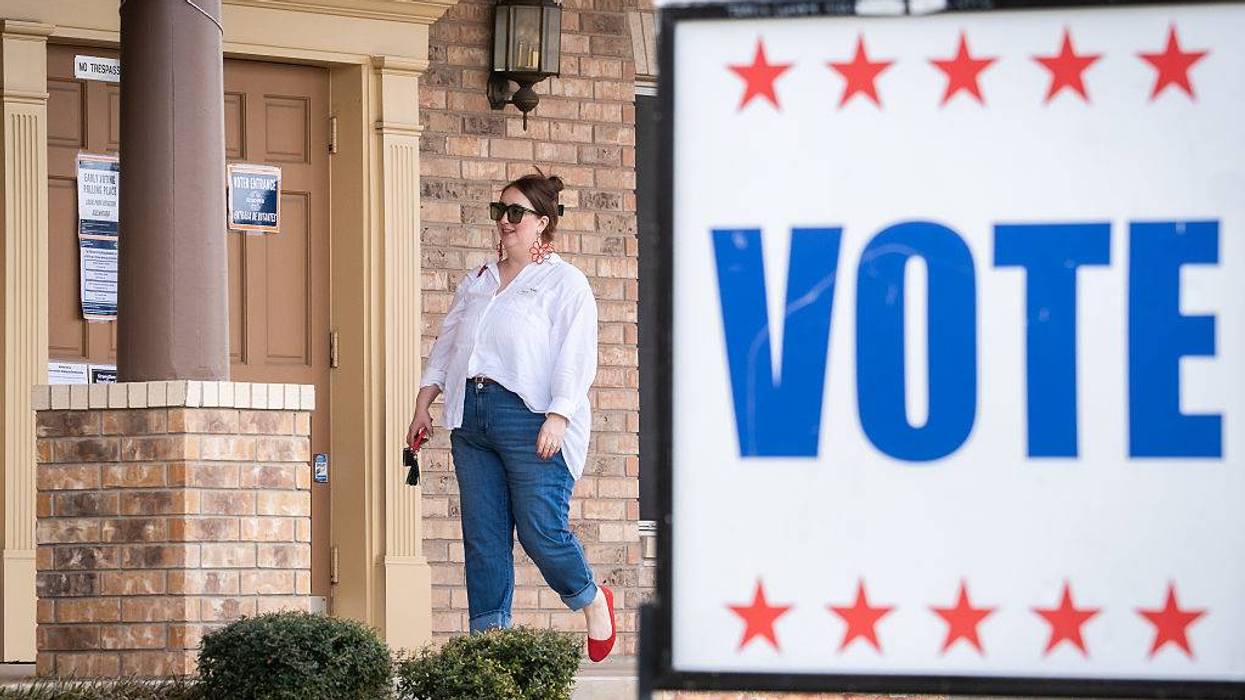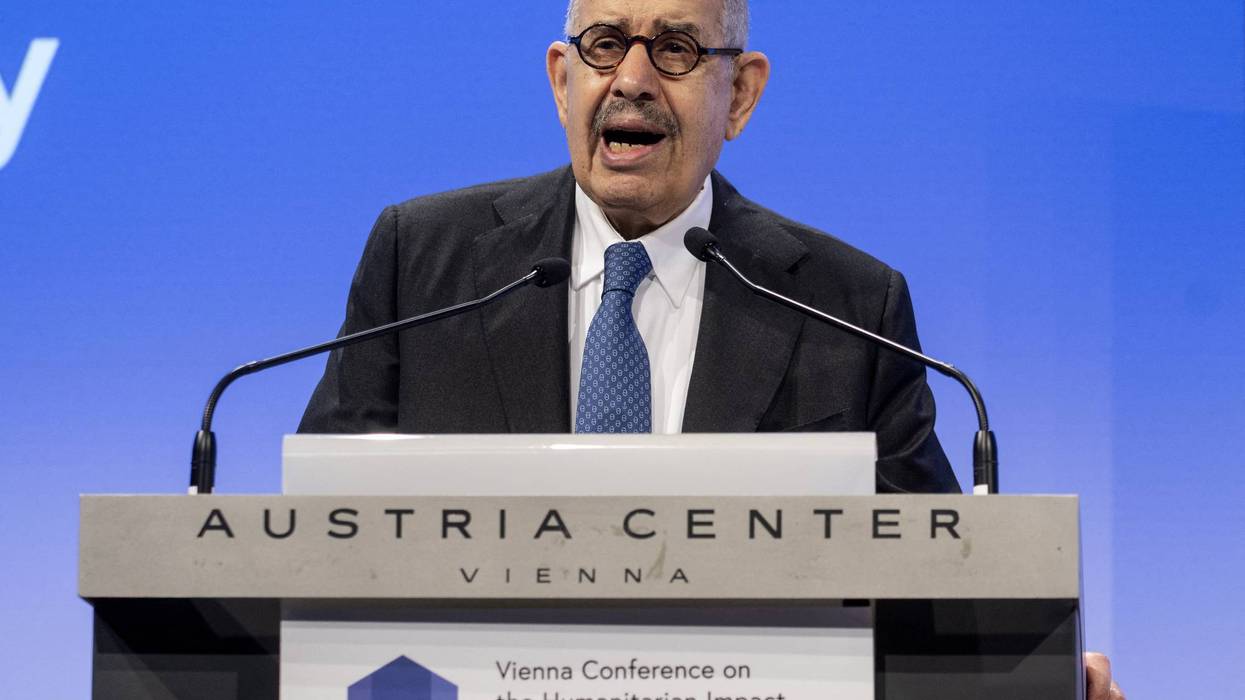June, 27 2018, 12:00am EDT

Lawyers' Committee for Civil Rights Under Law Issues Statement on SCOTUS 5-4 Ruling in Janus v. AFSCME
Today, the U.S. Supreme Court issued a 5-4 decision in Janus v. AFSCME, Council 31, ruling that requiring non-members of public sector unions to pay fair share fees violates the First Amendment. Kristen Clarke, President and Executive Director, Lawyers' Committee for Civil Rights Under Law, issued the following statement:
WASHINGTON
Today, the U.S. Supreme Court issued a 5-4 decision in Janus v. AFSCME, Council 31, ruling that requiring non-members of public sector unions to pay fair share fees violates the First Amendment. Kristen Clarke, President and Executive Director, Lawyers' Committee for Civil Rights Under Law, issued the following statement:
"The Janus decision is an affront to the labor rights of public sector employees all across our country, particularly working-class families who are disproportionately minority. The ruling places corporate interests over the interests of some of the most vulnerable members of our workforce, including teachers, firefighters, police officers and other working-class employees who drive our economy.
"Remarkably, this ruling defies 41 years of legal precedent. It's not every day that the Court overturns its prior and carefully considered decisions in the absence of a significant change of facts or circumstances. It raises questions about this Court's commitment to the core principle of stare decisis.
"This decision will make it more difficult for public sector employees to protect their rights through union representation and will exacerbate the widening wealth gap between the haves and have nots in our country."
The Lawyers' Committee for Civil Rights Under Law joined an amicus brief along with the National Women's Law Center and the Leadership Conference on Civil and Human Rights. The amicus brief notes the importance of unions as one of the most effective vehicles to move people into the middle class, especially for women and people of color. This decision deals a large blow to the overall collective bargaining and political power on behalf of union members, including at the national level. The weakening of public sector unions disproportionately impacts workers of color. In 2016, African American men had the highest general union representation rate, followed by African American women.[1]
A decision in favor of AFSCME would have protected the current union funding system and helped unions to continue to protect the rights of marginalized individuals. For instance, African American workers represented by unions, regardless of union membership status, had significantly higher median weekly earnings ($807 for represented members and $808 for union members) than their non-union counterparts ($646).[2] Public sector unions supported by agency fees help communities of color increase their earning capacity and wealth, giving them a better shot to achieve financial security for their families and future generations.
About the Lawyers' Committee for Civil Rights Under Law:
The Lawyers' Committee for Civil Rights Under Law (Lawyers' Committee), a nonpartisan, nonprofit organization, was formed in 1963 at the request of President John F. Kennedy to involve the private bar in providing legal services to address racial discrimination. Now in its 55th year, the Lawyers' Committee is continuing its quest to "Move America Toward Justice." The principal mission of the Lawyers' Committee for Civil Rights Under Law is to secure, through the rule of law, equal justice for all, particularly in the areas of criminal justice, fair housing and community development, economic justice, educational opportunities, and voting rights. For more information, please visit https://lawyerscommittee.org
The Lawyers' Committee is a nonpartisan, nonprofit organization, formed in 1963 at the request of President John F. Kennedy to enlist the private bar's leadership and resources in combating racial discrimination and the resulting inequality of opportunity - work that continues to be vital today.
(202) 662-8600LATEST NEWS
Texas Democratic Primary Turnout Surges in Show of 'Strong Enthusiasm' From Base Voters
Texas Democratic primary turnout has already broken records in both Harris County and Tarrant County.
Feb 26, 2026
Turnout among early Democratic voters in Texas has been surging in what election analysts say is a key sign for what's to come in the 2026 midterm elections.
As CNN reported on Thursday, early voting data shows that more than 850,000 ballots have so far been cast in the Texas Democratic primary, which is "nearly 60% more than the number of votes cast at the same point in the 2020 Democratic presidential primary."
CNN said that this high turnout points to "a continuing trend of strong enthusiasm among the party's base."
To put this in perspective, the Texas Tribune noted that "more ballots have been cast in Texas through the first seven days of early voting for the 2026 midterms than any recent midterm or presidential election year," driven primarily by Democratic turnout.
The Tribune added that Democratic turnout has already broken records in Harris County, the most populous county in Texas, and in Tarrant County, where Democrat Taylor Rehmet earlier this year pulled off an upset victory in a district that President Donald Trump carried by 17 points in the 2024 election.
In breaking down the early turnout numbers so far, CNN polling analyst Harry Enten said on Wednesday that Democrats in Texas may actually outvote Republicans in a primary this year for the first time since 2002.
Enten also said that the turnout surge has big implications for the 2026 midterms.
"When we're talking nationally, primary turnout matters," he explained. "The fact that more people are voting on the Democratic side in Texas at this point, that translates nationally, that would suggest Democrats [are] well on their way to winning the House. And in a red state like Texas? As I said: Mind blown."
Mind blown about the early vote in Texas. TX Dems may outvote the GOP for the 1st time in a midterm primary since 2002!
This indicates they're well on their way to having higher primary turnout nationally & since 06 the party w/ higher primary turnout won the House every time. pic.twitter.com/QaBlWZOCi2
— (((Harry Enten))) (@ForecasterEnten) February 25, 2026
While winning the primary turnout battle wouldn't guarantee a Democratic victory the Texas US Senate general election, Politico reported on Thursday that Republicans in the state are growing nervous about the race.
In particular, Republicans fear that Texas Attorney General Ken Paxton, a highly divisive figure even among Texas Republicans, could win the nomination over incumbent Sen. John Cornyn (R-Texas).
Senate Majority Leader John Thune (R-SD) told Politico that Cornyn is "the best candidate on the ballot in a general election, not only for the Senate, but also for down-ballot races in the House that could be impacted by the Senate race too. He added that the GOP would likely have to spend more money propping up Paxton should he win the Republican nomination.
"Honestly, if you look at the polling in a general election setting," said Thune, "I don’t think it’s outside the realm of possibility that the seat [flips], depending on who the Democrats nominate."
US Rep. Jasmine Crockett (D-Texas) and Texas state Rep. James Talarico are the two leading Democrats battling for the party's US Senate nomination. A survey released Wednesday by pollsters from the University of Texas found that Crockett is leading Talarico in the primary race by 12 percentage points.
Keep ReadingShow Less
Trump March to War With Iran Is 'Iraq Redux,' Says Former Head of UN Nuclear Watchdog
"The US is intensifying the drumbeat of war against Iran, with zero explanation of the nonexistent legal authority to use force and zero evidence of an 'imminent threat,'" said Mohamed ElBaradei.
Feb 26, 2026
The former head of the International Atomic Energy Agency said Wednesday that a US war on Iran would have "horrific costs," a warning that came before American and Iranian officials gathered in Geneva for the latest round of closely watched negotiations.
"The US is intensifying the drumbeat of war against Iran, with zero explanation of the nonexistent legal authority to use force and zero evidence of an 'imminent threat' other than hypothetical scenarios based on possible future intentions," Mohamed ElBaradei, a Nobel Peace Prize laureate who served as IAEA director-general from 1997 to 2009, wrote in a social media post.
"All wars, including 'wars of choice,' have horrific costs," he added. "That is the reason for the restraints and limitations established by international norms. This is Iraq redux... It seems we never learn."
US President Donald Trump and members of his administration have repeatedly claimed, without evidence, that Iran desires and is on the brink of making a nuclear weapon, even after Trump claimed to have "obliterated" the country's nuclear program with airstrikes last year.
Iran has said its nuclear program is entirely for peaceful purposes; the nation's foreign minister, Abbas Araghchi, said earlier this week that Iran would "under no circumstances ever develop a nuclear weapon."
"A deal is within reach, but only if diplomacy is given priority," said Araghchi.
In recent weeks, the Trump administration has assembled a massive fleet of warplanes and aircraft in the Middle East as the US president has threatened to attack Iran, accusing the country of harboring "sinister nuclear ambitions."
But Rafael Grossi, the current head of the IAEA, said last week that the nuclear agency had not seen any evidence that Iran is currently working to develop nuclear weapons capacity.
"On the contrary, I see, today, a willingness on both sides to reach an agreement," said Grossi.
Keep ReadingShow Less
Nearly Blind Rohingya Refugee Found Dead After Being Stranded by Border Patrol in Freezing Cold
"There must be a full investigation and real accountability from US Customs and Border Protection," said one lawmaker.
Feb 26, 2026
The latest chapter in what one historian called "the ongoing horror story of American immigration enforcement" unfolded in Buffalo, New York this week after Nurul Amin Shah Alam, a 56-year-old Rohingya refugee from Myanmar, was released from a county jail where he'd been held for a year.
As Buffalo-based outlet the Investigative Post reported Wednesday, the nearly blind man was found dead on Tuesday evening, five days after US Border Patrol agents who had picked him up from the jail dropped him off at a coffee shop. They neglected to inform his lawyer or family where he was, making it impossible for Shah Alam to find his way home in sub-freezing temperatures.
Shah Alam, who was blind in one eye and had partial, blurry vision in the other, had gotten lost one day in February 2025 and ended up on a woman's porch with a curtain rod he used as a walking stick.
The woman called the police, who ordered Shah Alam to drop his "weapon"—the walking stick—and then Tasered, beat, and arrested him.
Shah Alam, who could not speak English and did not understand the police officers' orders, was charged with assault, trespassing, and possession of a weapon and taken to Erie County Holding Center.
His family, which includes a wife and two sons, chose not to bail him out of the county jail. His arrest had come a month into President Donald Trump's second term, and they feared US Immigration and Customs Enforcement would detain him if he was released and send him to a detention center out of state.
Benjamin Macaluso, an attorney with Legal Aid Bureau who was representing Shah Alam, told the Investigative Post that he had been released on bail last week after reaching a deal with the Erie County District Attorney’s office, agreeing to plead guilty to trespassing and possession of a weapon. The agreement allowed him to avoid detention by federal immigration agents even though authorities had previously placed an immigration detainer on Shah Alam.
Despite that, the Erie County Sheriff’s Office contacted US Border Patrol to pick Shah Alam up from the Holding Center. When the agents determined Shah Alam was not eligible for immigration detention, Border Patrol told the Investigative Post, they "offered him a courtesy ride, which he chose to accept to a coffee shop.”
An agency spokesperson claimed the nearly blind man "showed no signs of distress, mobility issues, or disabilities requiring special assistance."
Mohamad Faisal, one of Shah Alam's two sons, told Al Jazeera that his father was not able to read, write, or use electronic devices.
Macaluso told the Investigative Post that Shah Alam's family spent days searching for him in the cold before his body was found. The lawyer also said he had expected Shah Alam to be taken to an ICE detention center in Batavia, New York to be released.
A spokesperson for City Hall in Buffalo told the Investigative Post that homicide detectives were "investigating the circumstances and timeframe of events leading up to his death, following his release from custody," but said homicide and exposure to the elements had been ruled out as the cause of death by a medical examiner.
US Rep. Grace Meng (D-NY) was among those who called for a "full investigation" into Border Patrol's decision to leave Shah Alam miles from his home despite his disability.
Buffalo Mayor Sean Ryan, a Democrat, accused US Customs and Border Protection, which oversees Border Patrol, of a "dereliction of duty" and said the agency's treatment of Shah Alam was "inhumane."
"US Customs and Border Protection must answer for how and why this happened," said Ryan. "Buffalo is a city that welcomes refugees and believes government should protect human dignity, not endanger it. US Customs and Border Protection failed that basic standard."
Chuck Park, a Democrat who is running for Congress in New York's 6th District, said the New York for All Act, which would prohibit state and local law enforcement from collaborating with federal immigration agencies, would have prevented the sheriff's office from calling Border Patrol upon Shah Alam's release.
Alexandre Burgos of the New York State Hate and Bias Prevention Unit invited community members to a gathering to demand accountability to Shah Alam's death.
"We are coming together to demand accountability and transparency in the case of Nurul Amin Shah Alam," reads a flyer for the event, scheduled for Thursday evening at 5:30 pm Eastern at Lafayette High School in Buffalo.
Keep ReadingShow Less
Most Popular


